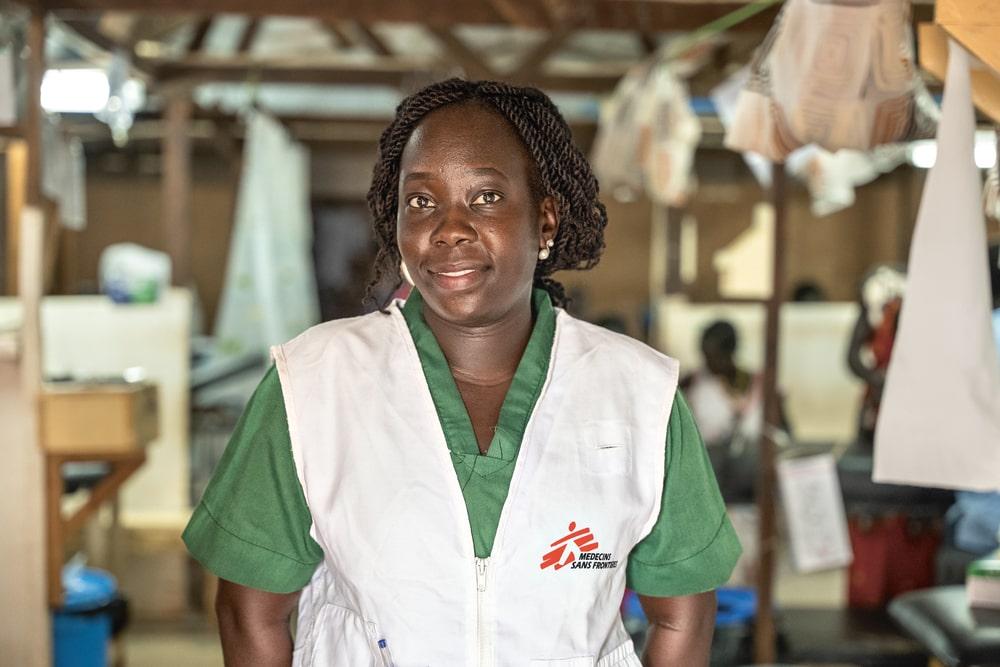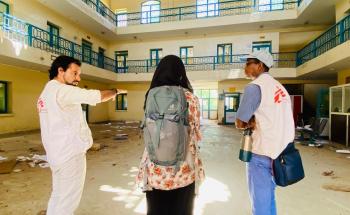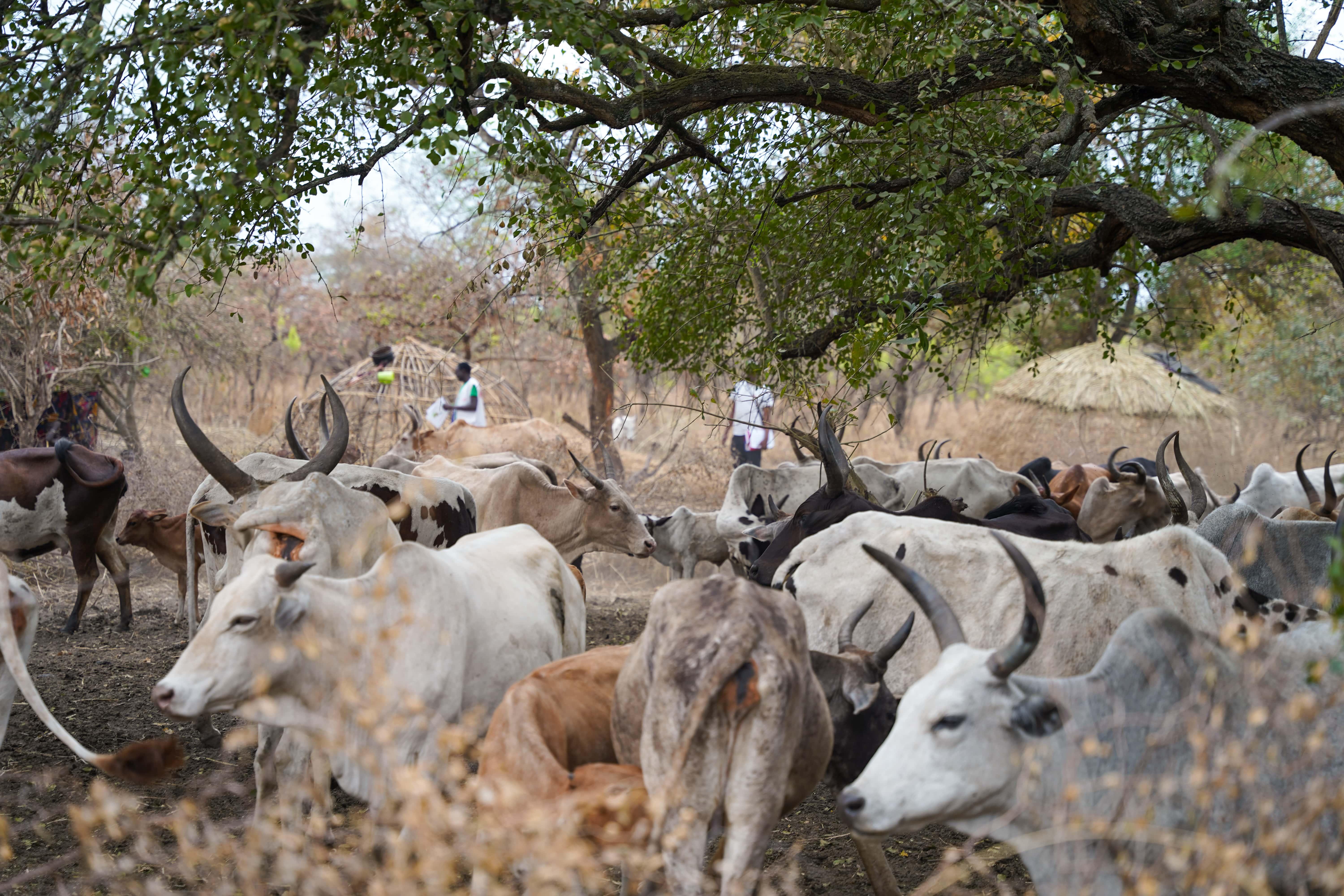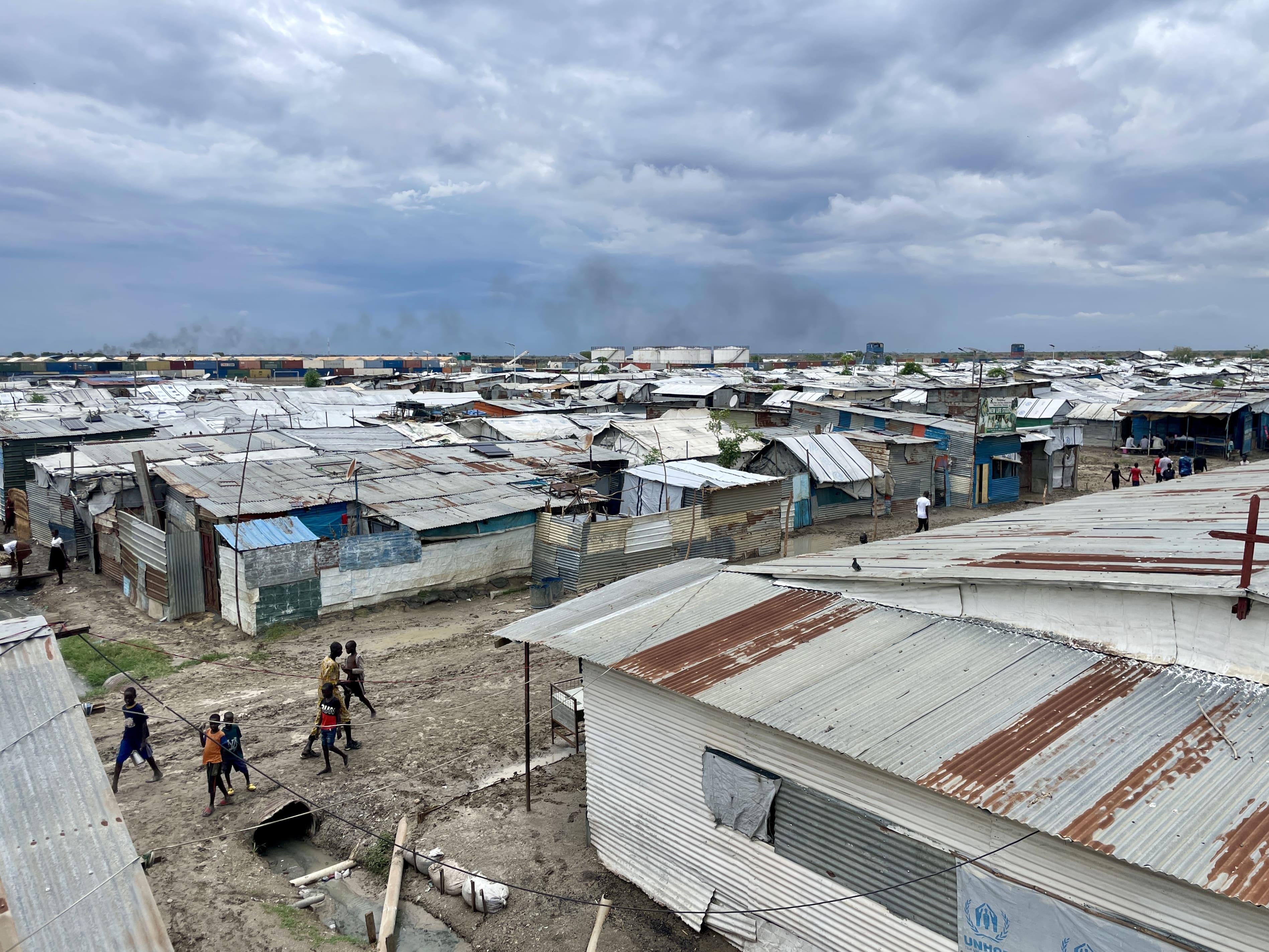Juliana Alexander Justin is a clinical officer in our emergency department in South Sudan. The country's healthcare system lacks enough experienced doctors, and her responsibilities are immense. But for her, a childhood dream came true.
Becoming a Clinical Officer in South Sudan:
"As a child, I spent many nights in the hospital. I grew up in the town of Wau in South Sudan, where my mother worked as a nurse. She often took me with her on her night shifts so that I could look after my little sister, who was still a baby. I loved watching my mother talking to patients in a calm voice, taking their blood and handing out medication. I was fascinated by her ability to help the sick and injured. Those nights made me want to become a doctor one day.
However, after I finished school, my parents were unable to pay the fees for medical school. I was lucky, though, because at that time, the South Sudanese government set up training scholarships for nurses, midwives and clinical officers. The aim was to counteract the high maternal and infant mortality rate in the country. I applied and was successful: as a clinical officer, I was able to come close to my professional dream.
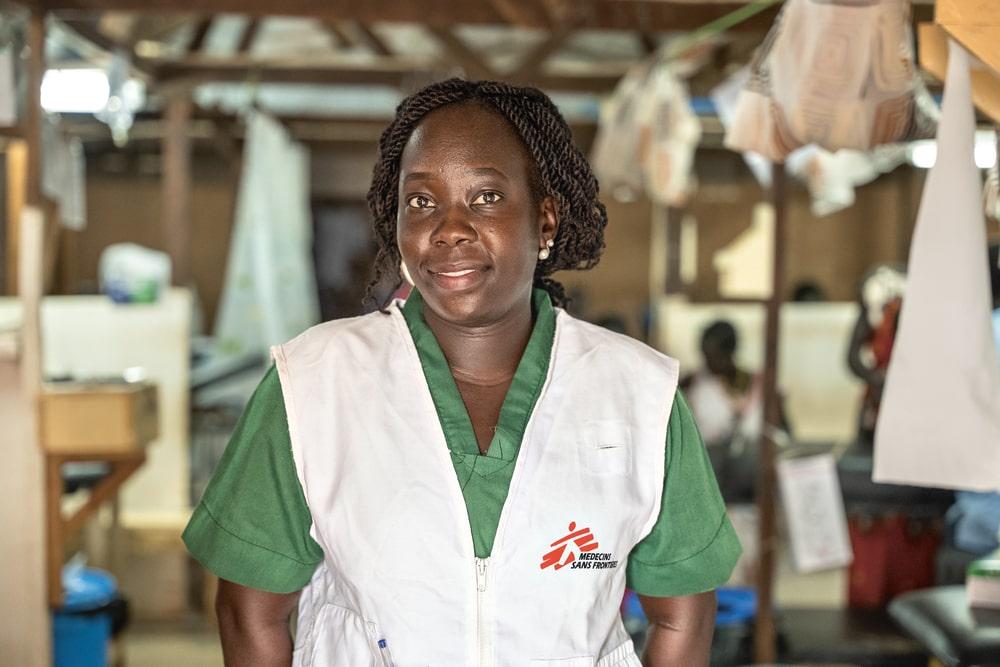
Providing medical care in South Sudan
Getting there was not easy. My mother tongue is Balanda, and at school, we were taught in Arabic, but now the entire training was in English, which I didn't speak very well at that time. I also had to quickly take on tasks in clinical work that I wasn't actually trained for. There are far too few doctors in South Sudan as a whole. We clinical officers fill the gap despite only having three years of training. Carrying such a huge responsibility was hard at first. There were times when I could only motivate myself to keep going because, despite all the setbacks, I could see every day that many of my patients were getting better and better.
I am now a very experienced medic and have been working for MSF in the emergency room in Aweil in the north of the country for seven years. We provide free help for around 1.3 million people.
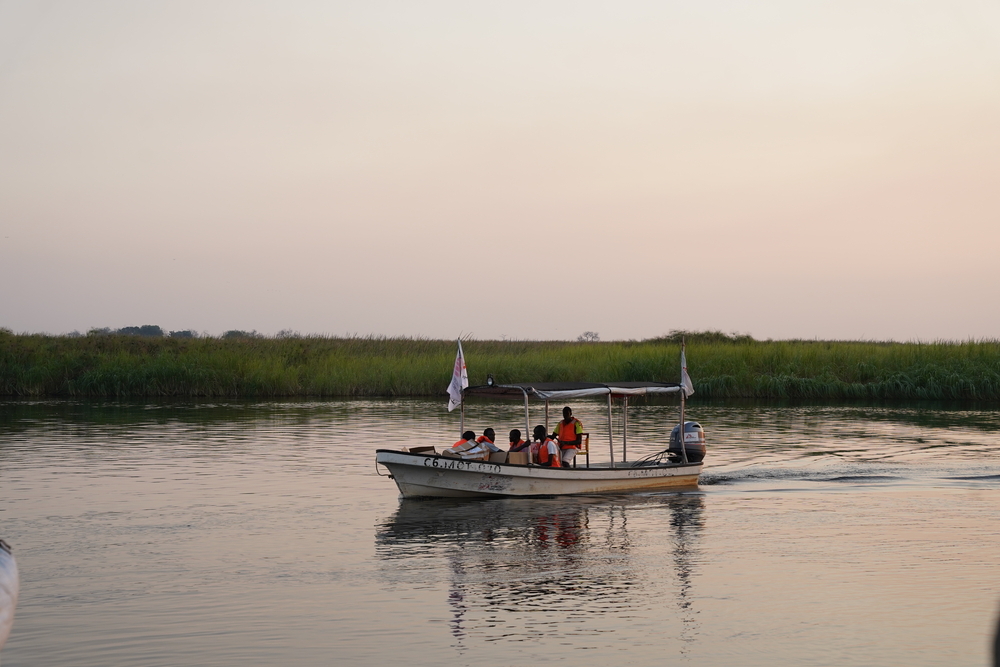
40 years of MSF in South Sudan
Providing medical care during malaria season
During the malaria season, for example, we have to care for many children at the same time with very few staff, and many of these children are in mortal danger.
I then work in a highly concentrated manner so as not to lose any time. I recently prepared a blood transfusion for a seriously ill child. The mother told me, completely exhausted, that she had been walking to the clinic for a day and a half. She had no money for transportation. That's how it is for many families. I was glad that she had made it to us in time.
I always have to expect the worst in my work. What helps me to endure this is the strong support in our team. We give each other advice, are there for each other in difficult moments and thank each other for the good work we do. But what gives me the most strength and confidence for my job are my patients and the knowledge that I can do a lot for them - just as my mother was once able to do a lot for her patients."
Clinical officers have completed three years of medical training, and their qualifications place them in the category of nurses and doctors. They form the backbone of medical care in South Sudan.
